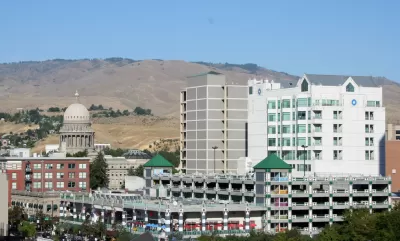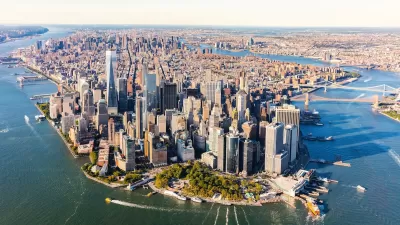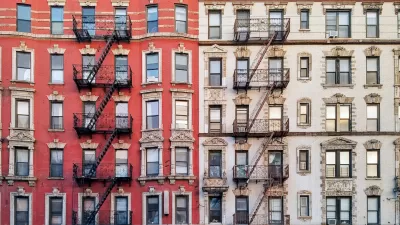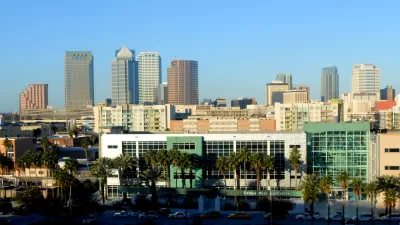Under the city's Grow Our Housing program, vacant offices could see a new life as below-market rentals.

Boise officials are considering buying a downtown office building and converting it into affordable housing. Jared Brey reports on the city's plan to create below-market rental housing by employing adaptive reuse to convert former office and commercial buildings to apartments.
Leon Letson, manager for the city's Grow Our Housing program, emphasized that the city is still working on the first acquisition and considering a variety of options for the future, including vacant land and existing buildings, to create more housing at less cost than new construction. The city would purchase the building for its affordable housing land trust and partner with a developer for the conversion. According to Letson, Boise's vacant offices are often ideally situated and provide a unique opportunity. "Oftentimes these office buildings are located in areas that we would encourage housing — neighborhood centers in close proximity to transit."
With offices emptied by the pandemic and more companies announcing plans to shift to work-from-home permanently, adaptive reuse can create a new life for these properties and provide much-needed housing. However, conversions can be costly, with a 2019 Office-to-Affordable-Housing Task Force in Washington, D.C. concluding that "office-to-residential conversions are 'not the most effective method of addressing the District’s most pressing housing needs.'"
Boise, meanwhile, hopes the project will be the first of many successes and plans "to acquire two or three more properties and bring 200 or so units into the land trust in the next year or so."
FULL STORY: Boise’s Affordable Housing Land Trust Strategy Includes Office Conversions

Planetizen Federal Action Tracker
A weekly monitor of how Trump’s orders and actions are impacting planners and planning in America.

Maui's Vacation Rental Debate Turns Ugly
Verbal attacks, misinformation campaigns and fistfights plague a high-stakes debate to convert thousands of vacation rentals into long-term housing.

Restaurant Patios Were a Pandemic Win — Why Were They so Hard to Keep?
Social distancing requirements and changes in travel patterns prompted cities to pilot new uses for street and sidewalk space. Then it got complicated.

In California Battle of Housing vs. Environment, Housing Just Won
A new state law significantly limits the power of CEQA, an environmental review law that served as a powerful tool for blocking new development.

Boulder Eliminates Parking Minimums Citywide
Officials estimate the cost of building a single underground parking space at up to $100,000.

Orange County, Florida Adopts Largest US “Sprawl Repair” Code
The ‘Orange Code’ seeks to rectify decades of sprawl-inducing, car-oriented development.
Urban Design for Planners 1: Software Tools
This six-course series explores essential urban design concepts using open source software and equips planners with the tools they need to participate fully in the urban design process.
Planning for Universal Design
Learn the tools for implementing Universal Design in planning regulations.
Heyer Gruel & Associates PA
JM Goldson LLC
Custer County Colorado
City of Camden Redevelopment Agency
City of Astoria
Transportation Research & Education Center (TREC) at Portland State University
Jefferson Parish Government
Camden Redevelopment Agency
City of Claremont





























